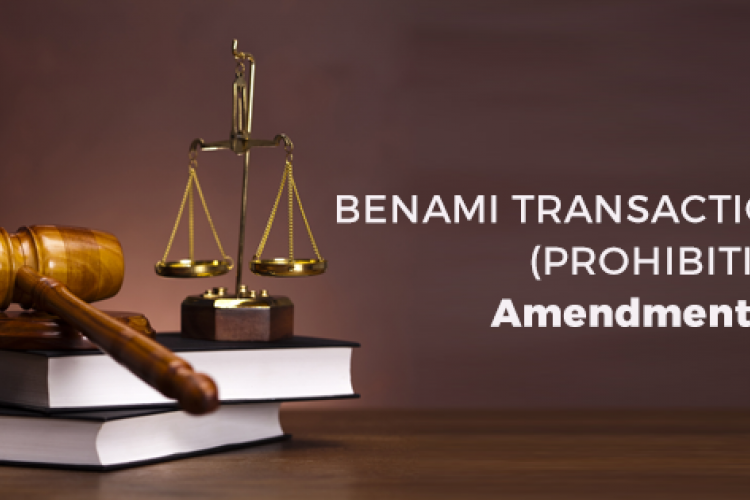Benami Transactions (Prohibition) Act – Recent developments
What’s the issue?
The Act provides that the Central government, in consultation with the Chief Justice of the respective High Courts, will establish special courts through notification. Such courts are to be constituted to ensure that the trials are conducted “as expeditiously as possible”.
However, the required special courts have not been set up yet. Therefore, despite the fact that investigations in almost 100 cases have been completed by the I-T Department in different States, including confirmation of attachment of properties by the Adjudicating Authority, the prosecution of accused persons has not started.
About the Benami Act:
The Benami Transactions (Prohibition) Amendment Act, 2016, designed to curb black money and passed by parliament in August, came into effect on November 1, 2016. The new law amends the 1988 Benami Transactions Act.
Highlights of the Act:
- The law provides for up to seven years’ imprisonment and fine for those indulging in such transactions.
- The law prohibits recovery of the property held benami from benamdar by the real owner. As per the Act, properties held benami are liable for confiscation by the government, without payment of compensation.
- An appellate mechanism has been provided under the act, in the form of an adjudicating authority and appellate tribunal. According to the government, the four authorities who will conduct inquiries or investigations are the Initiating Officer, Approving Authority, Administrator and Adjudicating Authority.
What is benami transaction?
A benami transaction is one where a property is held by one person and the amount for it is paid by another person. Therefore, in a benami transaction, the name of the person who paid the money is not mentioned. Directly or indirectly, the benami transaction is done to benefit the one who pays.


 IAS -2025 Prelims Combined Mains Batch - III Starts - 14-04-2024
IAS -2025 Prelims Combined Mains Batch - III Starts - 14-04-2024